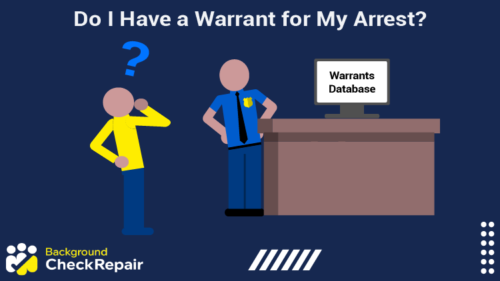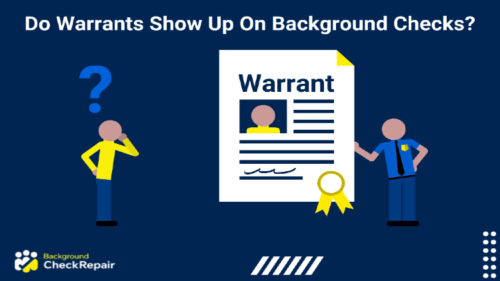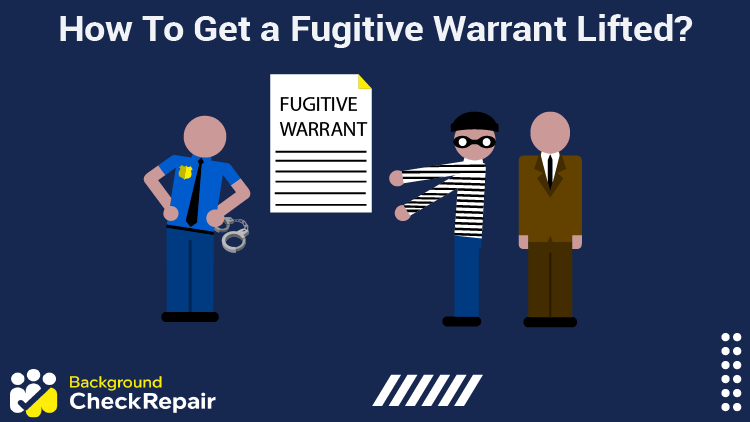
Need to know how to get a fugitive warrant lifted?
Any person who has knowingly (or unknowingly) crossed state or country lines when there was an active arrest warrant against them becomes a fugitive from justice.
A fugitive warrant is one type of arrest warrant that is more serious than others, because it hinges on the belief that the individual fled from justice or prosecution. The process to resolve this type of warrant can be complicated, but working in conjunction with an attorney opens more doors and possibilities.
This complete guide outlines how to get a fugitive warrant lifted with legal help, how to find out if you have a warrant, and what happens after you appear.
How To Get a Fugitive Warrant Lifted
There is a unique subset of arrest warrants known as fugitive warrants. Fugitive warrants are issued for individuals who have given the appearance of fleeing from justice, usually across state or country lines.
A fugitive warrant is an order to apprehend and detain a suspect for extradition – the process of transferring the individual back to the jurisdiction where the crime was committed.5, 10, 26
There is not a simple process for how to get a fugitive warrant lifted as this type of warrant is very serious. The best option available to individuals who find themselves in this position is to retain an experienced attorney.
By working with an attorney to set up a voluntary surrender and subsequent court date, a defendant can demonstrate that they are taking responsibility for the situation.5
Depending on the severity of the crime and state of apprehension, an attorney may be able to work with the judge to secure extradition bail and have the fugitive warrant lifted.26
What Is an Out of State Fugitive Charge?
The Uniform Criminal Extradition Act (UCEA) of 1936 has been adopted by all U.S. states except for South Carolina and Missouri, which have a similar law in place.1 The UCEA describes how out of state fugitive charges are to be handled.27
It states that individuals who have been charged with a crime in one state can and should be arrested in whatever state they flee to and held while the requesting state is notified (see Legal Information Institute at Cornell Law School 18 U.S Code § 3182).17
The National Crime Information Center (NCIC) is a national database run by the FBI which allows law enforcement to track crimes, active warrants, and more across state lines.5,28
What Is Foreign Warrant Fugitive Holding?
Not every fugitive from justice flees across state lines; some fugitives flee the country entirely. When a fugitive from justice is apprehended in a country with a U.S. extradition treaty, the situation is a foreign warrant fugitive holding.
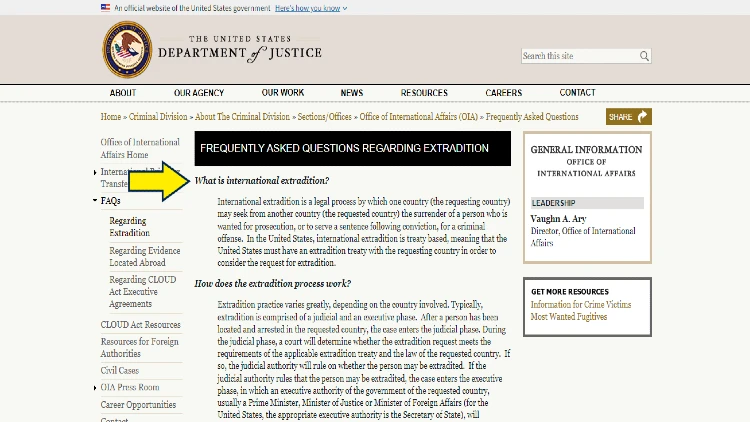
Extradition is the process of moving an individual to the jurisdiction where criminal charges are filed, and this can occur between states and countries.
According to the U.S. Department of Justice, fugitives may be held in custody while the holding country determines whether they will extradite the individual to the requesting country.24,29 The FBI Ten Most Wanted Fugitives list gives information on U.S. fugitives from justice who may be hiding within or outside of the United States.30
Advice on How To Handle Fugitive Warrants (How To Get a Fugitive Warrant Lifted)
There are many tips for how to handle fugitive warrants, and most of these suggestions pin on one crucial point: a good defense attorney. Individuals with active fugitive warrants should retain a good lawyer who can arrange a court date or safe surrender with law enforcement.
Voluntary surrender is the best option for individuals with warrants, but it is wise to secure representation before taking this step, as a good attorney may be able to get the defendant out on bail.5,10
How To Find Out if You Have a Warrant
Determining whether a warrant exists for you is dependent upon understanding the different types of warrants. It can also be helpful to learn ways to check if you’re charged with a crime.
Though many people are familiar with the idea of search warrants from popular crime television, this article deals primarily with arrest warrants.
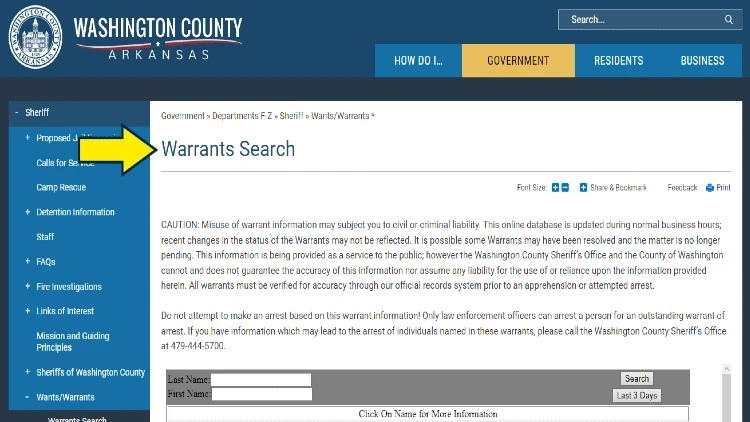
Every state offers a warrant search platform that can be accessed online to search for active warrants for a person, usually by name.
Arrest warrants come in two primary types: criminal arrest warrants (hereafter referred to as arrest warrants) and bench warrants. A typical arrest warrant is an order for law enforcement to apprehend an individual for an alleged criminal act (see United States District Court Arrest Warrant).31
Conversely, a bench warrant is a court order to apprehend an individual for violating a court order (e.g. missing a court date, failing to pay court fees and fines, or contempt of court).
Individuals wondering “Do I have a warrant for my arrest?” must also be aware that arrest warrants can be issued at the Federal, state, or local level. Official government databases and public court records are excellent resources but warrant information is often only available at the level where the order was issued.18
How Do I Do a Federal Warrant Search?
Conducting a warrant check within the federal system is not as easy as one would hope. All information about Federal warrants is stored in the U.S. Marshals Warrant Information System,35 which unfortunately is not accessible to the public but only to authorized personnel.
Federal search warrants might be looked up through the Federal website PACER (Public Access to Court Electronic Records).32 However, an arrest warrant check is more complicated. An individual might be able to obtain this information through contact with the Federal Clerk of Courts or the Police Department.15
An individual assumes significant risk taking this route without an experienced defense attorney. An attorney will help an individual find relevant information and navigate the court system.19
Though the FBI Identity Summary Summary typically only retains information about arrests, charges, and convictions, it could potentially turn up arrest warrants from time to time.34
How Do I Do a State Warrant Search?
A state warrant search is much easier to perform than a federal search. Many states throughout the U.S. have databases that allow an individual to enter their full name and run a search. Utah’s Statewide Warrant Search service is one example of such a database.
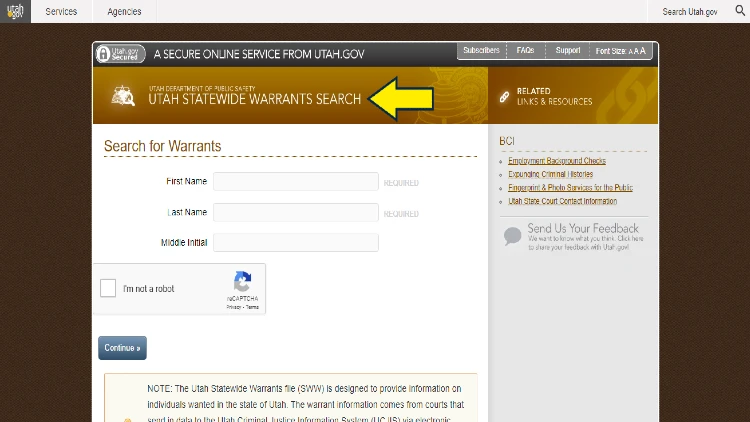
A statewide warrant search is performed using the state police or law enforcement website, and can be accessed online.
An individual can conduct a Utah Statewide Warrant Search in just a few moments and find the desired information.
Other states do not have statewide databases and require the individual to search at the local, or county, level. A warrant check in California is one such example.6
In this case, an individual can do an internet search for the state county name + warrant and come up with a resource such as the San Diego County Sheriff’s Department Warrant Query function.33
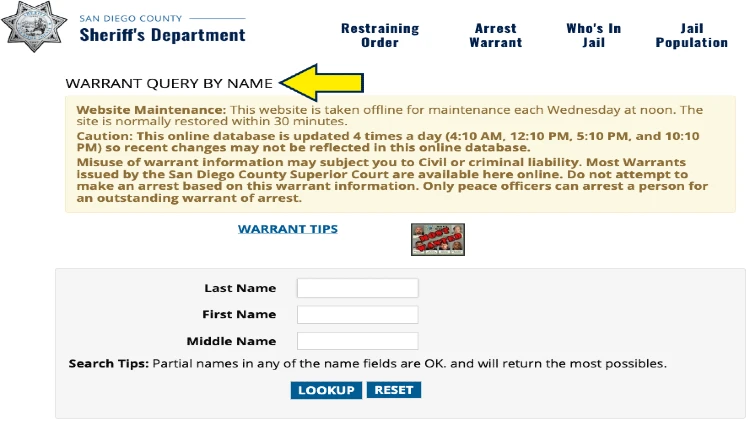
Most warrant search platforms allow users to add as much or as little information as they have, such as a partial name.
When a database is not available, making an inquiry with the county clerk, local courthouse, or Sheriff’s Department should generate the necessary information.18
How Long Do You Stay in Jail for a Warrant?
Individuals with outstanding arrest warrants are probably wondering how long do you stay in jail for a warrant.
Arrest warrants themselves do not necessitate that a defendant serves time in jail, but merely that they are apprehended and appear before a judge. However, the individual is typically detained until they are brought before a judge and bail can be set. This period of time usually lasts from 24 to 72 hours.
Individuals who cannot make bail may be detained until their trial hearing and even through the duration of the trial.1,21
How To Get a Fugitive Warrant Lifted When the Criminal Statute of Limitations Has Passed
Some states, such as California, have criminal statutes of limitations which dictate how much time is allowed for the criminal process to be initiated. While the statutes of limitations do not apply to arrest warrants, they do open the door to possibilities for how to get a fugitive warrant lifted.
When the statute of limitations for a given crime has expired, a good attorney may be able to get the case dismissed by demonstrating that the defendant was not aware of the active arrest warrant and that the right to a speedy trial was violated.16,22
Extradition is the term used for the return of an individual from an asylum state or country to a requesting state or country for prosecution.25
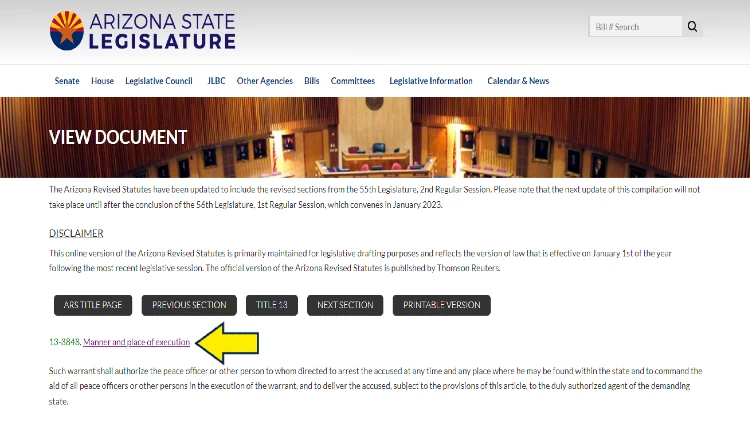
Extradition time frames are outlined by both federal and state laws, and can be found on the state’s Justice Department or Legislative websites.
The Uniform Criminal Extradition Act (UCEA) outlines the conditions upon which an individual may be held in an asylum state and extradited.26 Extradition can be a costly process and is often reserved for serious cases.5
Extradition time limits are also outlined by Federal and state law.
For persons wondering how long can someone be held in jail awaiting extradition, the crucial point is whether the individual is being held in a different state or different country. Fugitives arrested in a foreign country can be held for several months or even years awaiting extradition.24
Interstate extradition is regulated a bit more strictly, and there are limits placed on how long does a state have to extradite an inmate. In most cases, the requesting state (the state where the alleged offense occurred) has 30 days to retrieve the fugitive from the asylum state.17
In some cases, the courts may grant up to 60 extra days for extradition.26
How Long Can a County Jail Hold an Inmate for Another County?
Often, individuals with an arrest warrant in one county are arrested in an adjacent county or another county within the state. How long can a county jail hold an inmate for another county depends in large part upon the laws in the state where the crime occurred.
In many cases, 10 days is the maximum length of time an individual can be held before being transferred or released on bond.26
How Long Does It Take To Get a Warrant?
There are many reasons why someone may wonder how long does it take to get a warrant, whether an individual is someone who fears repercussions for reporting a crime or someone who is the target of a criminal investigation. Unfortunately, there is a large range of processing times for arrest warrants, depending on the nature of the crime and investigation, the staff allocated to the case, and waiting time on forensic labs and other third parties.
In some cases, it can take several months to secure an arrest warrant.2
How Much Does It Cost To Lift a Bench Warrant?
People aren’t only curious about how to get a fugitive warrant lifted; there’s also the other type of warrant mentioned earlier: the bench warrant. Individuals who want to know how much does it cost to lift a bench warrant are likely interested in understanding the process for how to remove a bench warrant.
As mentioned earlier, bench warrants are issued by a judge when an individual violates a court order, such as a court date, probation, payment of fees, etc.
A bench warrant can typically be cleared by appearing before a judge or having an attorney appear before a judge and paying fines and bail bonds.1,13
The cost for this process depends upon the original reason for the bench warrant, the fees accrued, the quality of the defense attorney, and the mercy of the presiding judge. It could range from an amount as small as $100 to several thousands of dollars. Some counties may occasionally grant amnesty upon application, so this is always worth investigating, but in most cases, the defendant will be responsible for at least 10% of the bail bond.14
Misdemeanor Failure To Appear Penalties vs Felony Failure To Appear Penalties
Many bench warrants are issued for failure to appear in court (FTA), but there is a big difference between misdemeanor failure to appear penalties and felony failure to appear penalties. Misdemeanor FTAs can result in a bench warrant, higher bail, a civil fine, and even an additional misdemeanor charge. The monetary and punitive consequences vary depending on the state but can result in hundreds of dollars (up to $1000) in fines and several months (up to 6 months) in county jail.1,20
Felony FTAs carry much heavier penalties and can result in many thousands of dollars in fines ($5,000+) and a few years in jail or prison (up to 4 years).1,20
Penalties for Other FTA Violations
There are plenty of scenarios aside from criminal cases where an individual might fail to appear, such as for probation check-in, as a witness for a criminal trial, in a family court custody hearing, for jury duty, etc. Penalties for other FTA violations such as these vary depending on the type of violation.
Individuals may be charged with contempt of court, resulting in a fine of $100 or more. They may be detained in jail for up to 72 hours awaiting a bench warrant hearing.14 If the FTA results in a misdemeanor charge, the individual may receive 6 months in jail and several hundred in fines.12
Some cases may also result in license suspension.11
Not every fugitive from justice fled prosecution intentionally, and some individuals may be completely unaware of their wanted status at the time they are apprehended.
This article explores the ins and outs of fugitive warrants and other types of arrest warrants and illuminates how a lawyer’s appearance is instrumental for anyone who wants to know how to get a fugitive warrant lifted.
Frequently Asked Questions About How To Get a Fugitive Warrant Lifted








